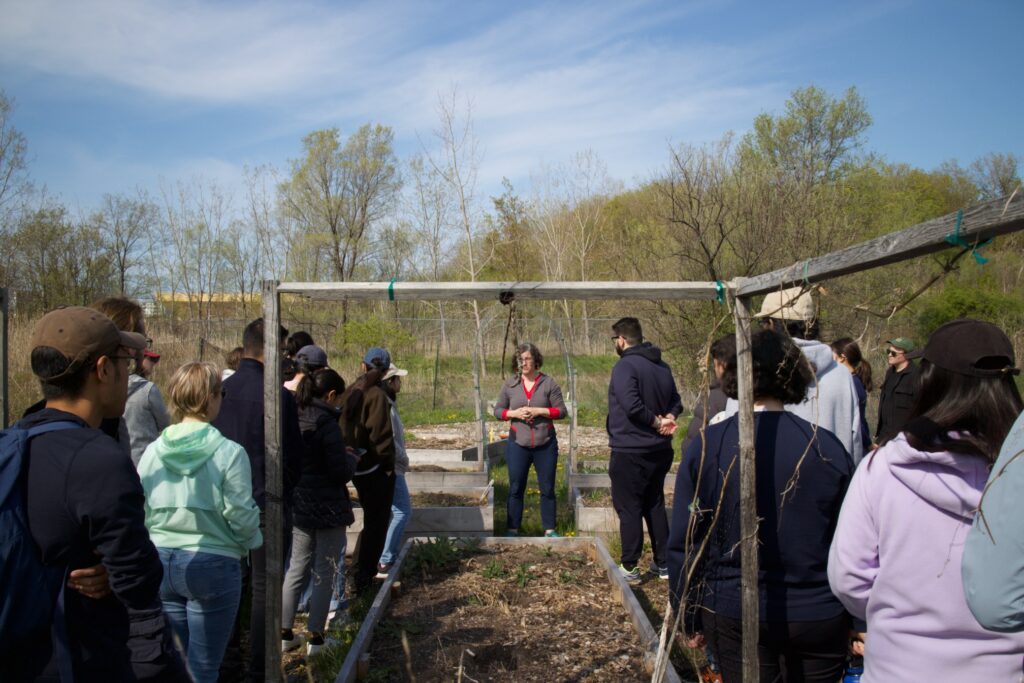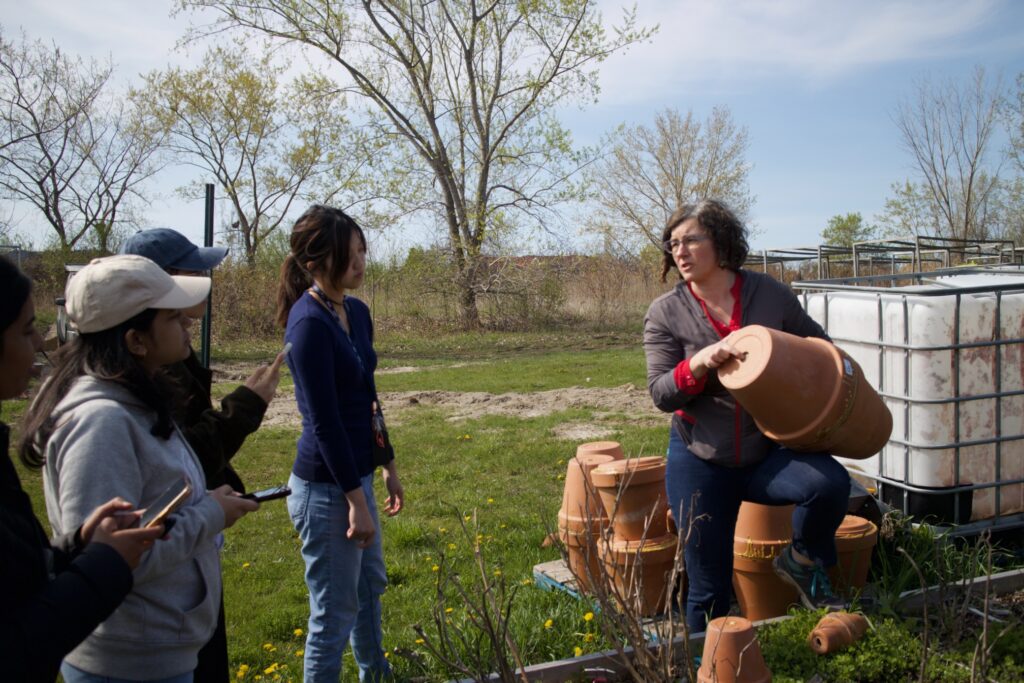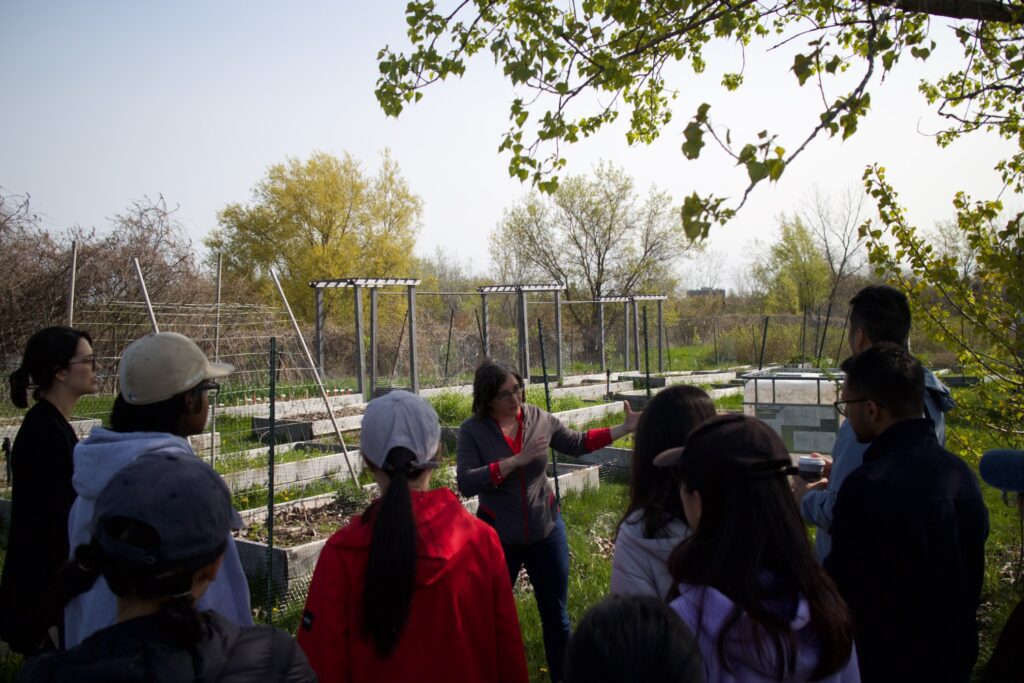
The University of Toronto Scarborough campus farm is 10 acres of land dedicated to teaching, research, and community engagement. The university-funded farm is nestled in the urban landscape of Scarborough. It focuses on using sustainable agricultural practices instead of relying on pesticides and artificial fertiliser. It serves as an invaluable resource for students and the local community to learn about sustainable practices in agriculture, engaging with communities, and biodiversity and its link to food security.
The campus farm has a focus on using natural, sustainable ways to maintain the soil and plants. A lot of the farming techniques they employ were learned from indigenous people, and they have a large focus on respecting and learning from them. One agricultural technique they use, pioneered by indigenous people, is planting the three sisters of crops. Corn grows tall and gives structure for beans, the second plant to grow around. The beans help fix nitrogen compounds into the ground as a natural fertiliser. The last is squash, which grows large leaves that cover the group and trap moisture in the soil while keeping pests away.
The farm uses an experimental method of integrating clay pots as an irrigation technique. Two pots are sealed open end together, and a hole is made at the bottom of one pot. The assembly is planted in the group and filled with water. The porous clay walls allow for the slow release of water into the soil for the plants to use. Moreover, the farm uses natural pest management like planting marigold, a natural pest repellent, alongside their crops.

Many green urban solutions incorporate green roofs as one of their main vectors to accomplish their goals. Using techniques that are more sustainable and require less intervention is critical for the success of the green roof system, especially since today many green roofs, once built, are not maintained.
Engaging with the communities on the farm is an avenue that allows for connections between the local community and the university staff and students. The farm offers workshops, programmes, and events for people to learn about urban agriculture techniques and get involved in seeing and connecting with the food on their plates. The farm also serves as a research centre, with the idea that new developments found by students can be applied to other urban farms to make them more successful.

The farm strives to preserve natural biodiversity. It has reserved 5 acres of their 10 acre land just to grow naturally and preserve the local habitat for a lot of plants and animals. When planning their farms, they focus on native species and also reuse seeds from previous seasons that are more adapted to the farm’s specific climate and environment. They offer a seed library for students, facility, and staff to start and learn about urban agriculture at their own homes.
The University of Toronto Scarborough Farm is a place that shows the possibilities that can come from investing in sustainable agriculture and community engagement. The emphasis on organic farming, education, and research allows people to not only connect with the food they eat but allows for strides in creating a more sustainable and less food insecure world. As urban agriculture gains momentum worldwide, the University of Toronto Scarborough Farm stands as an inspiring example of how universities can integrate sustainable practices and empower communities, ultimately shaping a more resilient and sustainable future.